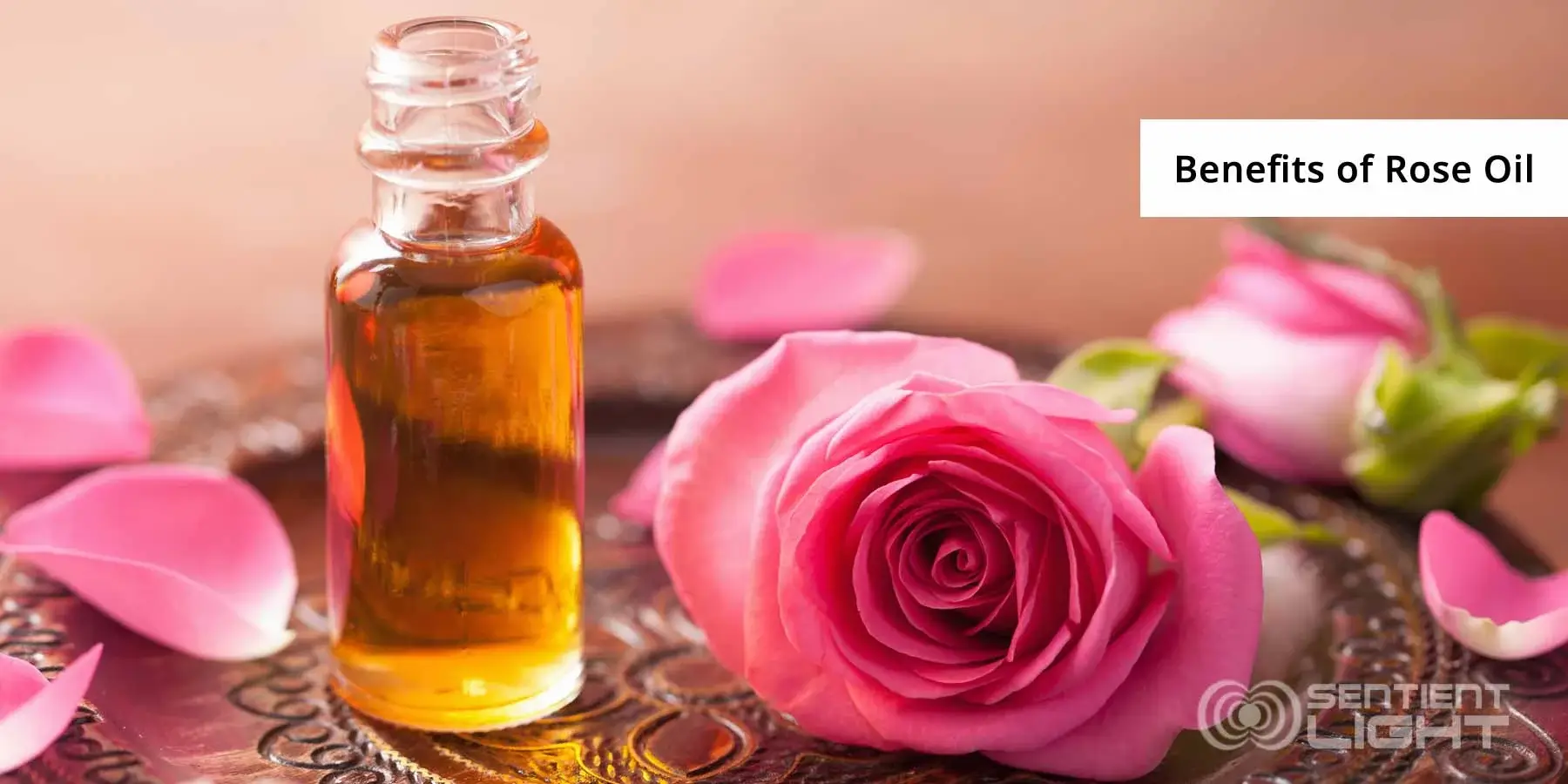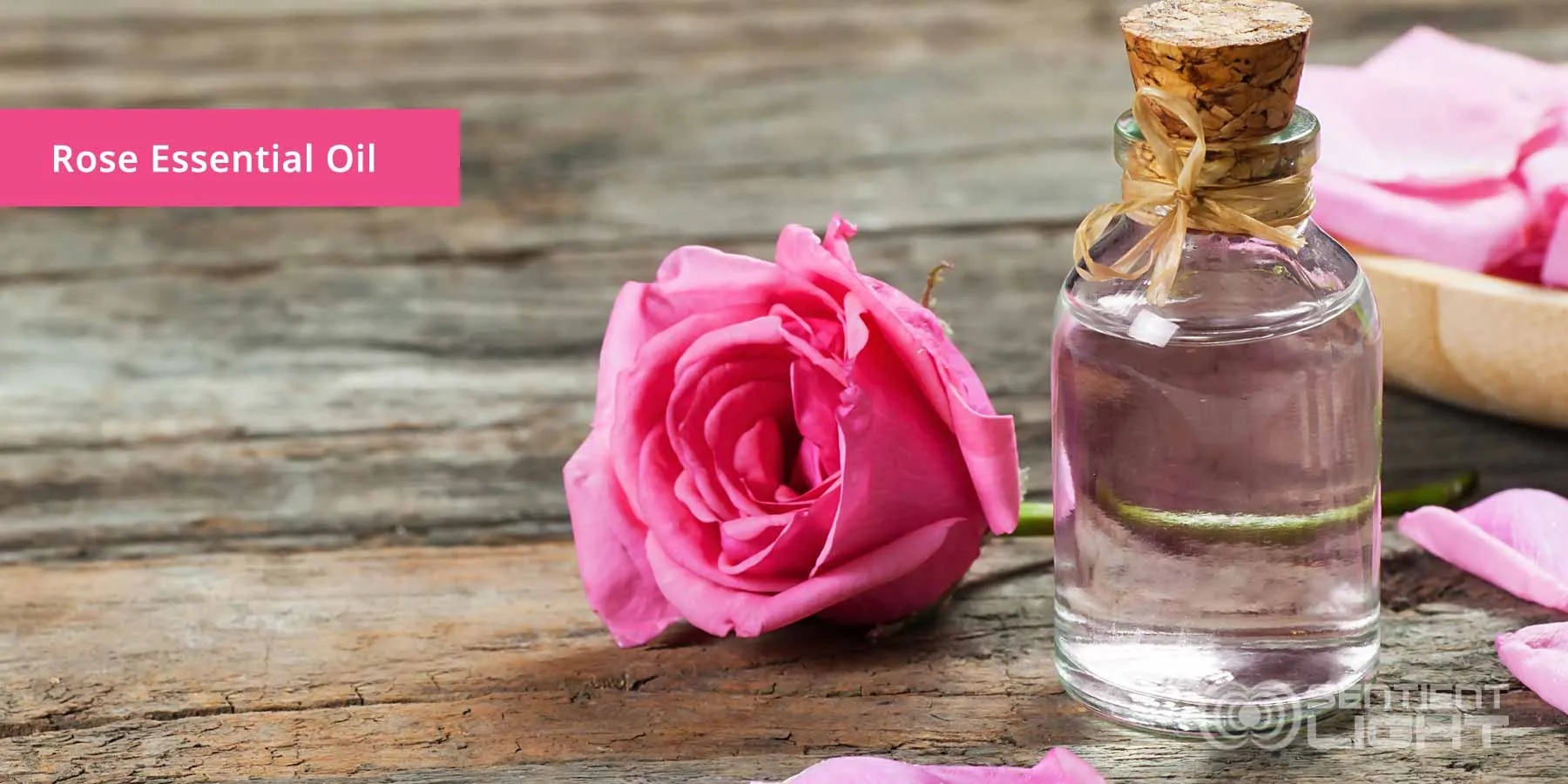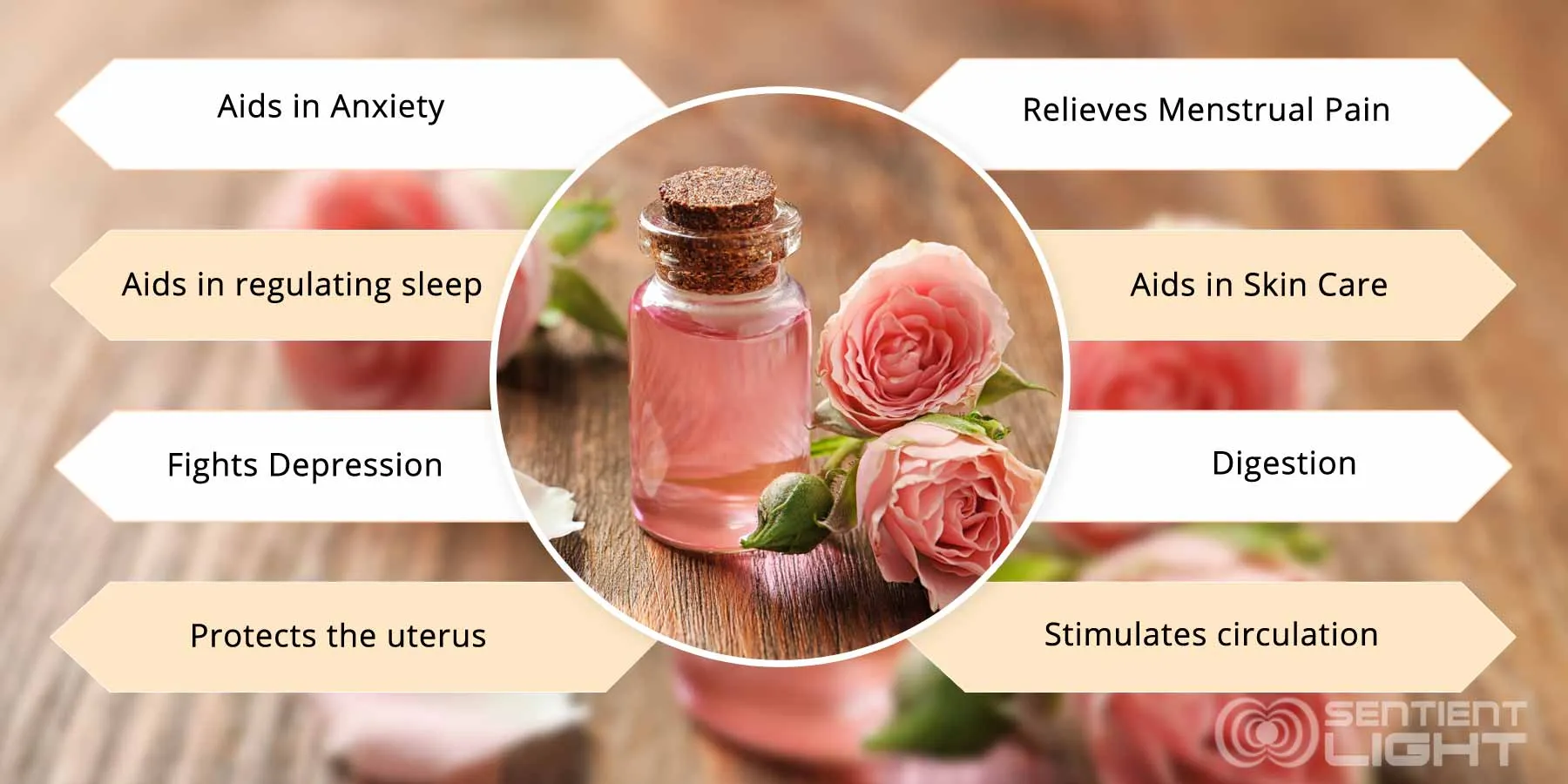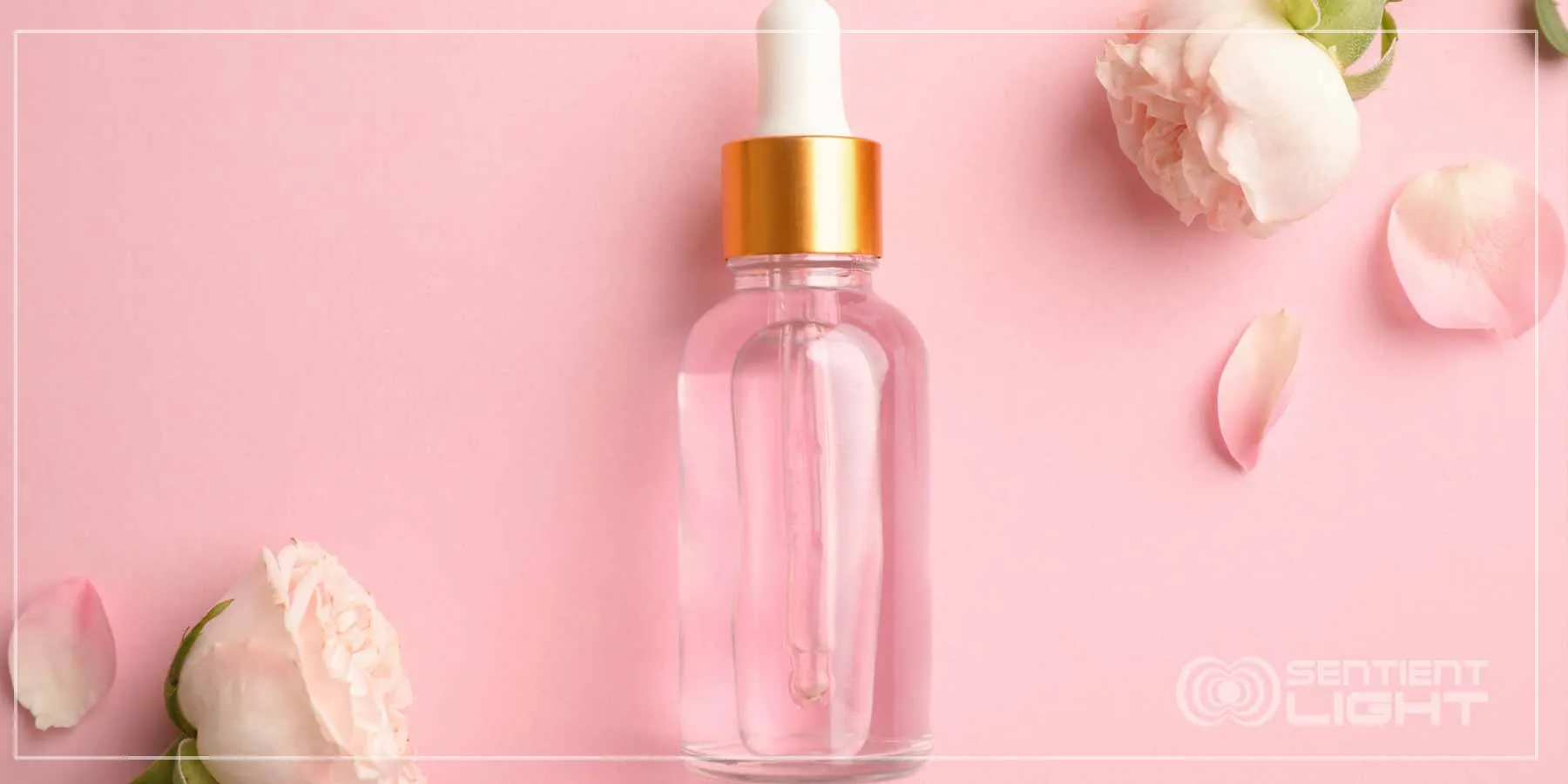Health Benefits of Rose Essential Oil

Commonly connected with romance, the smell of rose ignites memories of love. The flower of many colors has other benefits or uses too. What is rose oil? Rose essential oil commonly used in aromatherapy is sourced from the Rosa damascena plant. It contains the aromatic compounds of the flower. These compounds are known to possess healing properties. It can also be sourced from the Rosa centifolia plant.
Two main types of roses are valued in the cosmetic industry:
- Rosa damascena
- Rosa centifolia
There are quite a few blends in rose essential oils. One drop of oil is made with dozens of roses steamed to distill the roses and to capture their essence. Pure essential oil is hence very expensive. The blends are also highly powerful. Rose ylang-ylang and rose geranium are very relaxing and energizing.
Benefits of Rose Essential Oil

There are various compounds in Rose Essential Oil that contain healing and therapeutic compounds. Let’s look at a few health benefits of the compounds below:
- Citral - It is a strong antimicrobial that aids in vitamin A synthesis.
- Carvone - It is an effective digestive aid
- Citronellyl Acetate - It is responsible for the aroma of roses
- Eugenol - It is the richest antioxidant in the world
- Farnesol - It is a natural pesticide.
- Nerol - It is an antibiotic compound
- Citronellol - It is an effective mosquito repellant
Health Benefits of Rose Oil

A study published in the Nephron - Urology Monthly in 2016 had examined the use of rose essential oil for Anxiety. The results showed that the rose oil reduced anxiety levels considerably. The same was also confirmed by a 204-study published in the Pharmacology Biochemistry and Behavior.
A clinical study in 2016 conducted with women who presented with primary dysmenorrhea showed that rose essential oil helped in alleviating those women from their symptoms of painful periods (or dysmenorrhea). A study published in the Journal of Obstetrics and Gynecology in 2015, found that women who used rose oil experienced a reduction in menstrual cramps or pain compared to those who used unscented oil or none.
A study that was published in the Complementary Therapies in Clinical Practice in 2014 indicated that rose oil may improve the quality of sleep in people. Those who had received routine care with rose oil aromatherapy had quality sleep than those who hadn’t received routine care with aromatherapy.
Rose essential is an excellent natural remedy for the skin. It was found in a 2010 study by a few researchers that rose oil has one of the strongest bactericidal activities. It was found that rose oil was able to completely destroy the bacteria that is responsible for acne. The rose oil also helps in maintaining skin texture and combat skin-related diseases. The oil is also known to make scars, acne, stretch marks, and surgery scars fade quickly. The ability of rose oil to heal the scars, boils, or any blemish on the skin is attributed to the antioxidant activity of the rose oil.
Possible Side Effects of Rose Essential Oil

The oil should not be ingested, it is not meant for internal use. It should not be used close to any mucus membrane like the eyes. In the case of sensitive skin, the rose oil must always be diluted and a patch test must be conducted before topical use. The oil is often absorbed through the skin membranes and if used in excessive quantities it can lead to toxicity. The oil must always be kept out of reach for children and pets.
The strong aroma of the rose oil when used in high concentration can lead to a very strong headache. It should not be used during pregnancy, since the effects of rose oil on a fetus have not been studied as of yet.
Delaying or avoiding treatment or standard care for a chronic condition by self-treating can lead to dire consequences for the patient. It is hence, advised to always consult a general practitioner before self-diagnosing or self-treating for any chronic disease especially in diseases with a requirement for immediate intervention or psychological disorders.
There are many benefits of using rose essential oil. The oil helps in regulating hormone production and also helps in balancing the hormones. The aroma, as stated, helps in keeping the happy hormones high. The rose oil helps in reducing blood pressure, helps in relieving asthma, dehydration, headaches. The oil also takes care of the heart. The rose oil, in all, when used properly is a perfect relaxing aid and a health aid.
Frequently Asked Questions
- What are the benefits of rose oil for the skin?
The oil helps in reducing acne, breakouts, scars, and the leftover marks of boils or pox. The oil also helps in reversing aging and reduces wrinkles. The anti-inflammatory effects of rose essential oil aids in its benefits for the skin.
- How can you use rose oil?
There are quite a lot of different ways of usage of rose oil. The use of rose oil can either be aromatic or topical.
Aromatically: The rose oil can be diffused at home in a diffuser or the oil can also be inhaled directly. A few drops of the oil along with water on a spritz bottle can make for a natural room freshener.
Topically: It can be used undiluted. It is, however, a good idea to always dilute the oil using a carrier oil like coconut or jojoba. A small patch test has to be conducted before using the rose oil topically. Once there is a surety of no negative reaction, the rose oil can be used on larger areas.
- Is rose oil good for wrinkles?
The antioxidant, antibacterial and anti-inflammatory properties of rose oil have been suggested in various studies. Rose oil can reduce inflammation and can also help reduce the puffiness and redness of the skin. It can also be helpful in skin cell renewal which helps in keeping the skin youthful.
- Which oil is best for the face?
Essential oils help to reduce the appearance of wrinkles and other skin-related issues Essential oils also help in reducing inflammation, protecting the skin from dry air or exposure to UV rays, boosting collagen, and improving a person’s collagen. Various essential oils can be used like Lemon, Sandalwood, Clary Sage, Pomegranate, Lavender, Carrot Seed, Ylang-Ylang, Rosemary, Frankincense, and rose essential oil.
- Which oil is best for anti-aging?
It would be surprising to note that many of the store-bought skincare creams contain many essential oils. Many essential oils like almond oil, argon oil, avocado oil, jojoba oil, and vitamin E oil. All of these oils are known to produce younger-looking skin.
RELATED POSTS